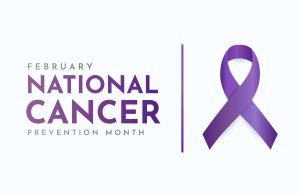 Approximately one in three people will be diagnosed with cancer at some point within their lifetime. It is partially for this reason that cancer the second leading cause of death among Americans, accounting for over 600,000 estimated deaths throughout the United States. Nearly half of these deaths are the result of preventable lifestyle factors or a failure to diagnose the disease early.
Approximately one in three people will be diagnosed with cancer at some point within their lifetime. It is partially for this reason that cancer the second leading cause of death among Americans, accounting for over 600,000 estimated deaths throughout the United States. Nearly half of these deaths are the result of preventable lifestyle factors or a failure to diagnose the disease early.
As there are many different types of cancer, there is no singular way to prevent it; additionally, there is no way to completely eliminate your risk of developing the disease. However, targeting the lifestyle factors that most frequently contribute to the incidence of cancer in general can help you protect your health and remain as cancer-free as possible.
To reduce the risk of cancer, you should:
Avoid smoking: According to the Centers for Disease Control and Prevention, smoking and exposure to second-hand smoke causes as many as 90% of lung cancer deaths in the United States. For people who don’t smoke but are frequently exposed to second-hand smoke, the risk of cancer may increase by up to 30%.
Avoid UV light: Exposure to ultra-violet radiation is the most common cause of melanoma, the deadliest form of skin cancer. This exposure most frequently occurs due to excessive time in the sun, particularly for people who are not wearing protective sunscreen with a sun protective factor (SPF) of 30 or higher.
Adopt a healthy diet and exercise routine: Obesity is linked to a wide range of chronic health problems, including at least 13 forms of cancer. A moderate diet that includes plenty of fruits, vegetables, whole grains, nuts, healthy proteins, and a limited amount of meat, paired with an exercise routine that includes a moderate amount of aerobic, strength, core, balance, and flexibility exercises, is ideal for maintaining your physical health and fitness.
Limit alcohol consumption: Your alcohol consumption, even at low levels, is directly correlated with your risk for several different types of cancer. Limiting the amount of alcohol you drink can help reduce your risk, but it is ideal to avoid it entirely, if possible.
Visit your doctor regularly: Typical annual check-ups such as a physical exam from your primary care physician or a skin exam from a dermatologist can help identify signs of cancer that may warrant further testing or a diagnosis. Many forms of cancer are also easiest to treat in their early stages, making regular screenings from cancer specialists helpful for reducing your risk of death.
Expert diagnostic testing and treatment for cancer is available in Queens through Jamaica Hospital Medical Center and Memorial Sloan Kettering Cancer Center’s joint Oncology program. Our state-of-the-art technology and innovative treatment approaches, coupled with services such as our patient navigation program to help guide you through the entire process, can give you the best possible chance at achieving remission and living cancer-free.
To learn more about our oncology services or to schedule an appointment, please call (718) 206-6742.
All content of this newsletter is intended for general information purposes only and is not intended or implied to be a substitute for professional medical advice, diagnosis or treatment. Please consult a medical professional before adopting any of the suggestions on this page. You must never disregard professional medical advice or delay seeking medical treatment based upon any content of this newsletter. PROMPTLY CONSULT YOUR PHYSICIAN OR CALL 911 IF YOU BELIEVE YOU HAVE A MEDICAL EMERGENCY.
